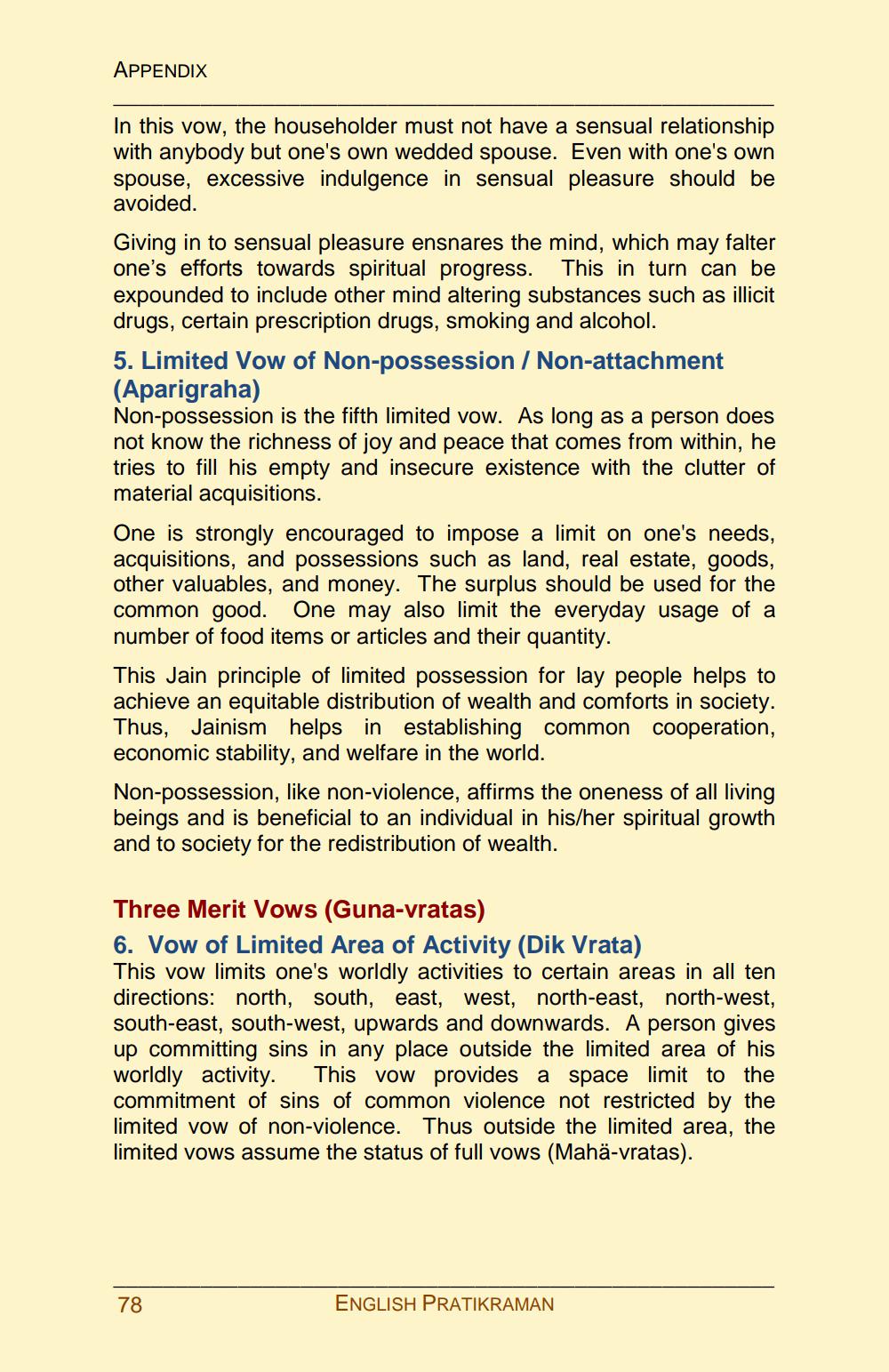________________
APPENDIX
In this vow, the householder must not have a sensual relationship with anybody but one's own wedded spouse. Even with one's own spouse, excessive indulgence in sensual pleasure should be avoided. Giving in to sensual pleasure ensnares the mind, which may falter one's efforts towards spiritual progress. This in turn can be expounded to include other mind altering substances such as illicit drugs, certain prescription drugs, smoking and alcohol. 5. Limited Vow of Non-possession / Non-attachment (Aparigraha) Non-possession is the fifth limited vow. As long as a person does not know the richness of joy and peace that comes from within, he tries to fill his empty and insecure existence with the clutter of material acquisitions.
One is strongly encouraged to impose a limit on one's needs, acquisitions, and possessions such as land, real estate, goods, other valuables, and money. The surplus should be used for the common good. One may also limit the everyday usage of a number of food items or articles and their quantity.
This Jain principle of limited possession for lay people helps to achieve an equitable distribution of wealth and comforts in society. Thus, Jainism helps in establishing common cooperation, economic stability, and welfare in the world.
Non-possession, like non-violence, affirms the oneness of all living beings and is beneficial to an individual in his/her spiritual growth and to society for the redistribution of wealth.
Three Merit Vows (Guna-vratas) 6. Vow of Limited Area of Activity (Dik Vrata) This vow limits one's worldly activities to certain areas in all ten directions: north, South, east, west, north-east, north-west, south-east, south-west, upwards and downwards. A person gives up committing sins in any place outside the limited area of his worldly activity. This Vow provides a space limit to the commitment of sins of common violence not restricted by the limited vow of non-violence. Thus outside the limited area, the limited vows assume the status of full vows (Mahä-vratas).
78
ENGLISH PRATIKRAMAN




